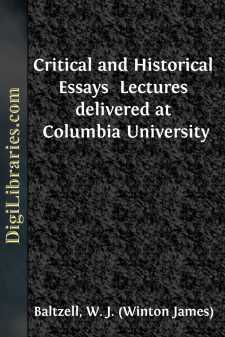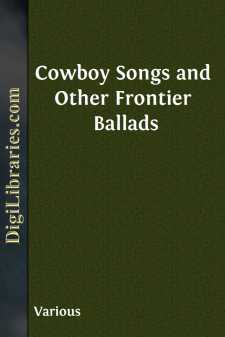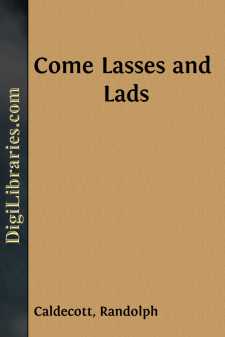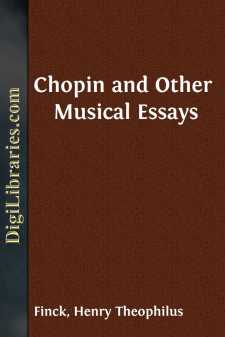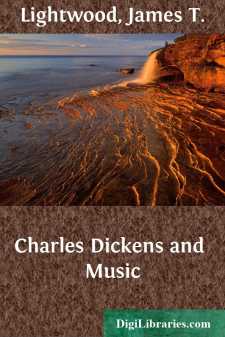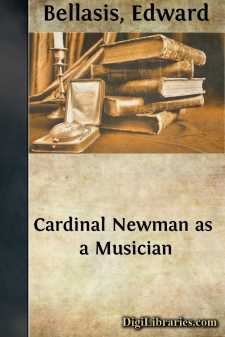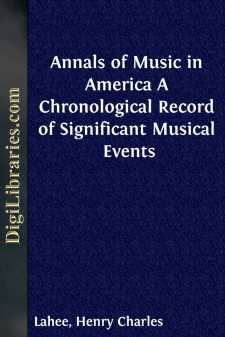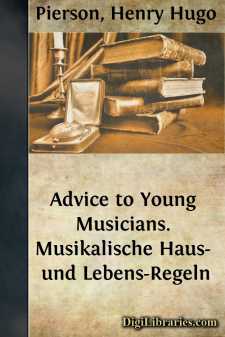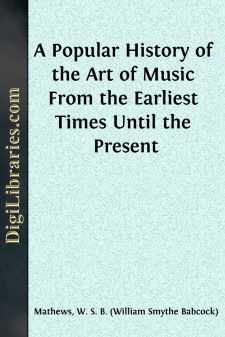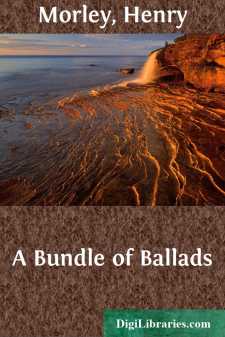Music
Music Books
Sort by:
CRITICAL AND HISTORICAL ESSAYS Darwin's theory that music had its origin “in the sounds made by the half-human progenitors of man during the season of courtship” seems for many reasons to be inadequate and untenable. A much more plausible explanation, it seems to me, is to be found in the theory of Theophrastus, in which the origin of music is attributed to the whole range of human emotion....
more...
by:
Various
INTRODUCTION It is now four or five years since my attention was called to the collection of native American ballads from the Southwest, already begun by Professor Lomax. At that time, he seemed hardly to appreciate their full value and importance. To my colleague, Professor G.L. Kittredge, probably the most eminent authority on folk-song in America, this value and importance appeared as indubitable as...
more...
COME LASSES AND LADS Come Lasses and Lads, get leave of your Dads, And away to the May-pole hey: For every heHas got him a she,with a minstrel standing by. ForWillyhas gotten hisJill,And Johnnyhas got hisJone,To jigg it, jigg it, jigg it, jigg it,Jigg it up and down. "Strike up," saysWatt; "Agreed," saysKate,"And I prithee, Fiddler, play;""Content," saysHodge, and so...
more...
I CHOPIN THE GREATEST GENIUS OF THE PIANOFORTE Leipsic, the centre of the world's music trade, exports about one hundred thousand dollars' worth of music to America every year. I do not know how much of this sum is to be placed to the account of Chopin, but a leading music dealer in New York told me that he sold three times as many of Chopin's compositions as of any other romantic or...
more...
CHAPTER I The attempts to instil the elements of music into Charles Dickens when he was a small boy do not appear to have been attended with success. Mr. Kitton tells us that he learnt the piano during his school days, but his master gave him up in despair. Mr. Bowden, an old schoolfellow of the novelist's when he was at Wellington House Academy, in Hampstead Road, says that music used to be...
more...
by:
Edward Bellasis
It is a remark of St. Philip Neri's latest biographer that, "Our Saint was profoundly convinced that there is in music and in song a mysterious and a mighty power to stir the heart with high and noble emotion, and an especial fitness to raise it above sense to the love of heavenly things." In like manner the Saint's illustrious son, Cardinal Newman, has spoken of "the emotion...
more...
1640-1750 The Annals of Music in America during the first hundred years contain very little that would seem to be of any importance to the musicians of today. Nevertheless it is as interesting to note the beginnings of music in this newly settled country as to watch the appearance of the baby's first tooth. The first settlement at Plymouth took place in 1620, and we find that in 1640 the colonists...
more...
The cultivation of the Ear is of the greatest importance.—Endeavour early to distinguish each several tone and key. Find out the exact notes sounded by the bell, the glass, the cuckoo, etc. Practise frequently the scale and other finger exercises; but this alone is not sufficient. There are many people who think to obtain grand results in this way, and who up to a mature age spend many hours daily in...
more...
INTRODUCTION. I. HE name "music" contains two ideas, both of them important in our modern use of the term: The general meaning is that of "a pleasing modulation of sounds." In this sense the term is used constantly by poets, novelists and even in conversation—as when we speak of the "music of the forest," the "music of the brook" or the "music of nature." There...
more...
by:
Henry Morley
INTRODUCTION BY THE EDITOR. Recitation with dramatic energy by men whose business it was to travel from one great house to another and delight the people by the way, was usual among us from the first. The scop invented and the glee-man recited heroic legends and other tales to our Anglo-Saxon forefathers. These were followed by the minstrels and other tellers of tales written for the people. They...
more...


